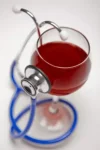Drug tolerance refers to the reduced effects of a substance with repeated exposure, requiring higher doses to achieve the same result. Understanding these risks is important for developing effective treatment strategies, particularly in cases involving opioids, sedatives, and other high-risk substances. If you suspect you might have alcohol intolerance, you will https://ecosoberhouse.com/ need a doctor to obtain a diagnosis. There are several testing methods your doctor will use to help confirm the diagnosis.
The Crucial Steps to Reset Alcohol Tolerance
- Our writers and reviewers are experienced professionals in medicine, addiction treatment, and healthcare.
- If you’re still able to stand, feel conscious, and can still be functional after drinking a considerable amount of alcoholic beverage, that means to say your alcohol tolerance is high.
- Join the Stomp the Stigma fundraiser to redefine recovery and fight mental health stigma through community support.
Factors such as frequency and amount of alcohol consumed, genetics, and overall health play a role in determining the duration of alcohol tolerance. Whether you are stopping for good, or just having some time off, it’s a good idea to be prepared for the changes you could see. But remember, if you think you may be dependent on alcohol, you should consult your doctor how to reset alcohol tolerance or another medical professional before stopping drinking. Some may set timelines to hit when it comes to resetting alcohol tolerance.
Tolerance Risks: Returning To Alcohol After A Break From Drinking
The process involves identifying safe spaces or people to confide in and expressing your struggles and goals. Participating in group therapy or individual counseling allows deeper exploration and shared experiences. “Social self” is defined as the way one relates to others and the ability to feel comfortable with other people. Initially, and for sometime afterward, alcohol may seem to enhance certain experiences. People may seem more accepting or less judgmental, and you might feel you “fit in.” You may convince yourself that experiences are more enjoyable and conversation more relaxed. These beliefs can help rationalize the negative experiences that might also occur.
Factors Influencing Alcohol Tolerance
Addiction indicates the need for formal substance abuse treatment to achieve a full recovery. Fortunately, there are many steps you can take to prevent addiction from taking hold. Tolerance to a drug can develop relatively quickly over just a few days, or it may take a few weeks or months to form. Ultimately, your body becomes less sensitive to a drug or substance over time with regular use. When you first started using the drug, whether it was for medical or recreational purposes, you likely needed a relatively small amount of the substance to achieve the intended benefits.
Alcohol tolerance is a common phenomenon that occurs when the body becomes accustomed to a certain level of alcohol consumption, requiring more alcohol to achieve the desired effects. It is a stage where the brain functions are pushed or stimulated to adapt to the frequent chemical disruptions in order to create a stable state. A chronic drinker may show no sign of intoxication even with high BAC that may have been fatal or incapacitating to an average drinker.
- Triggers can be emotional, like stress or loneliness, or situational, such as social events where alcohol is present.
- One of the benefits of taking a 30-day break from alcohol is improved sleep.
- Explore the NCAA’s high rate gambling on college basketball and its impact on student-athletes and mental health.
This guide outlines practical tips and strategies to help you embark on the journey to sobriety, ensuring you make informed decisions about your health and lifestyle. This approach helps individuals develop healthier coping mechanisms and reduce reliance on substances, which prevents the need for escalating drug doses due to tolerance. Approximately 60% of people who are treated with cognitive behavioral therapy for a substance use problem are able to maintain their recovery for a year, according to Verywell Mind. The strategies to manage and reduce drug tolerance include dose management, drug holidays and rotation, and behavioral interventions.
For many individuals, the concept of resetting alcohol tolerance can be a daunting and confusing task. Whether you’re an occasional social drinker or a heavy drinker, understanding how to reset your tolerance can be a crucial step in maintaining a healthy relationship with alcohol. In this article, we’ll explore the process of resetting your alcohol tolerance and provide a comprehensive guide on how to do so. Lifestyle changes that can assist in quitting drinking include maintaining a balanced diet rich in nutrients, which aids recovery and boosts energy levels. Regular exercise promotes mental health by releasing endorphins and can help manage stress, while prioritizing quality sleep fosters better mood stability and overall well-being.
What Medical Treatments Are Used to Address Drug Tolerance and Dependence?
The chronic drinker may be compelled to even increase their alcohol intake due to the lack of physical impact. For this reason, a person who has sound mental functions and can have coordinated conversations may show impairment when it comes to activities that involve eye-hand coordination such as driving. At this point, driving may be a death sentence even without the awareness of the drinker. Yes, high alcohol tolerance can be a risk factor for developing alcohol dependency. It can lead to increased Halfway house alcohol consumption and a vicious cycle of needing more alcohol to achieve the desired effects. The time it takes to build alcohol tolerance varies from person to person.
How Does Drug Tolerance Affect the Body and Mind?
It is important to consult with a healthcare professional about potential interactions between medications and alcohol. Individuals who drink in moderation and infrequently are less likely to experience a significant increase in alcohol tolerance. To protect yourself from the shame spiral, know that it is normal to need multiple attempts to achieve recovery from use of alcohol or other drugs. In another, it took people nine years from the time they first entered treatment for substance use to finally quit.






